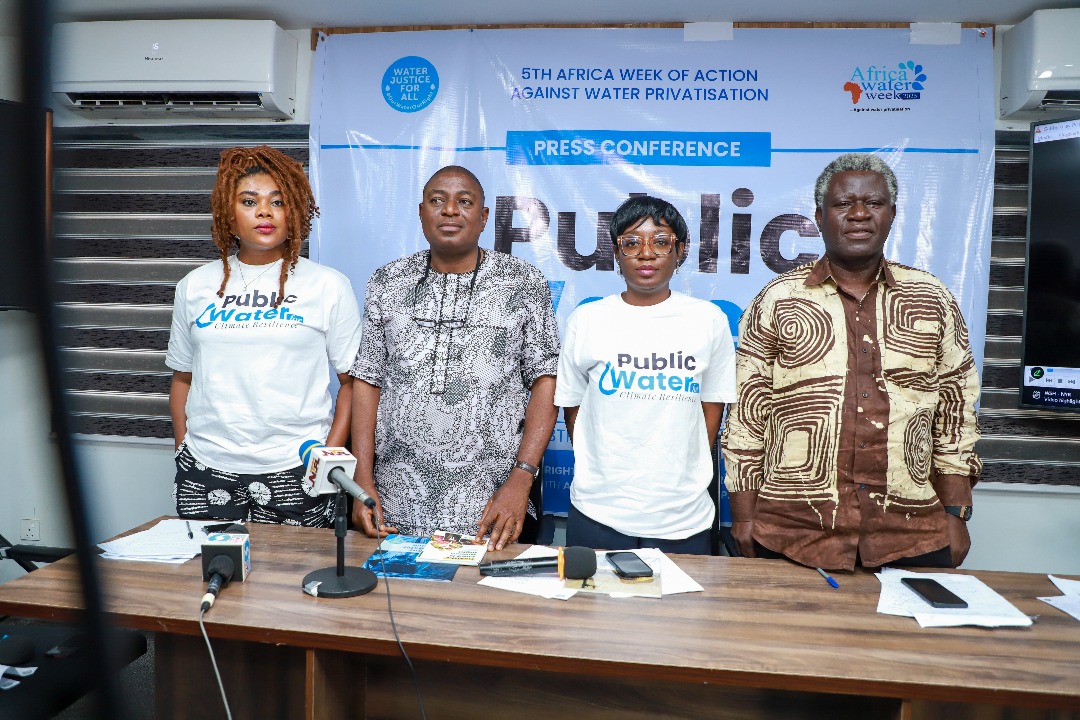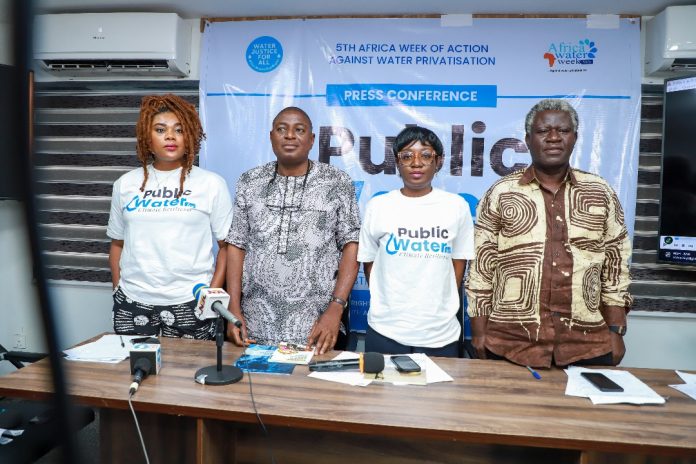OWORAC, UN expert, other campaigners reject World Bank/IMF water privatisation push in Africa
By Ishaya Ibrahim
The Our Water Our Right Africa Coalition (OWORAC), a pan-African movement against the commodification of water, has rejected a global push for water privatization across the continent.
At a press conference in Lagos held on Monday October 13, OWORAC said water is a public good and a human right which must never be surrendered to the logic of profit.
The IMF and World Bank have been pushing for the privatization of water in the form of public-private partnerships (PPPs). But OWORAC says the PPP scheme is a deceptive way of using public funds to support private interests which will eventually lead to deprivation of water to the poor.
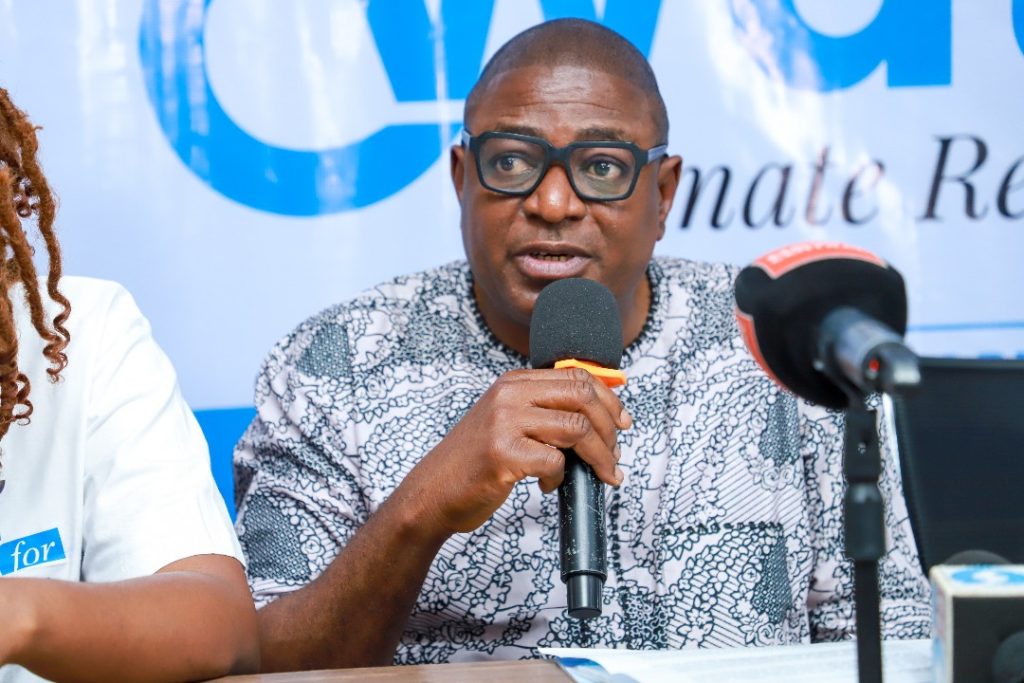 CAPPA’s Executive Director, Akinbode Oluwafemi
CAPPA’s Executive Director, Akinbode Oluwafemi
A statement signed on behalf of OWORAC by public water campaigners in Nigeria, South Africa, Ghana, Senegal, Cameroon, Kenya, USA, and Zimbabwe, and read by Sefa Ikpa, programme officer at CAPPA, warned against transferring public water systems to private enterprise.
The statement highlighted the impact of climate on water, worrying that governments, often at the behest of private sector and international financiers, have seized on these challenges to justify the transfer of water provision to private actors instead of investing in it.
The statement noted a worrying trend of governments across Africa signing deals with corporate organisations to promote desalination, a process of removing salt and other chemicals from sea water.
OWORAC says: “But desalination is no panacea. It is extremely energy-intensive, largely dependent on fossil fuels, and produces a concentrated salty waste called brine that pollutes marine ecosystems, destroys fisheries, and further dispossesses coastal communities.”
According to OWORAC, desalinated water is also more expensive than conventional sources. “In other parts of the world where it has been introduced, such as the Carlsbad plant in California, the cost of desalinated water is 73 percent higher than the existing supply according to Food & Water Watch, even as it has been flagged multiple times for environmental violations.”
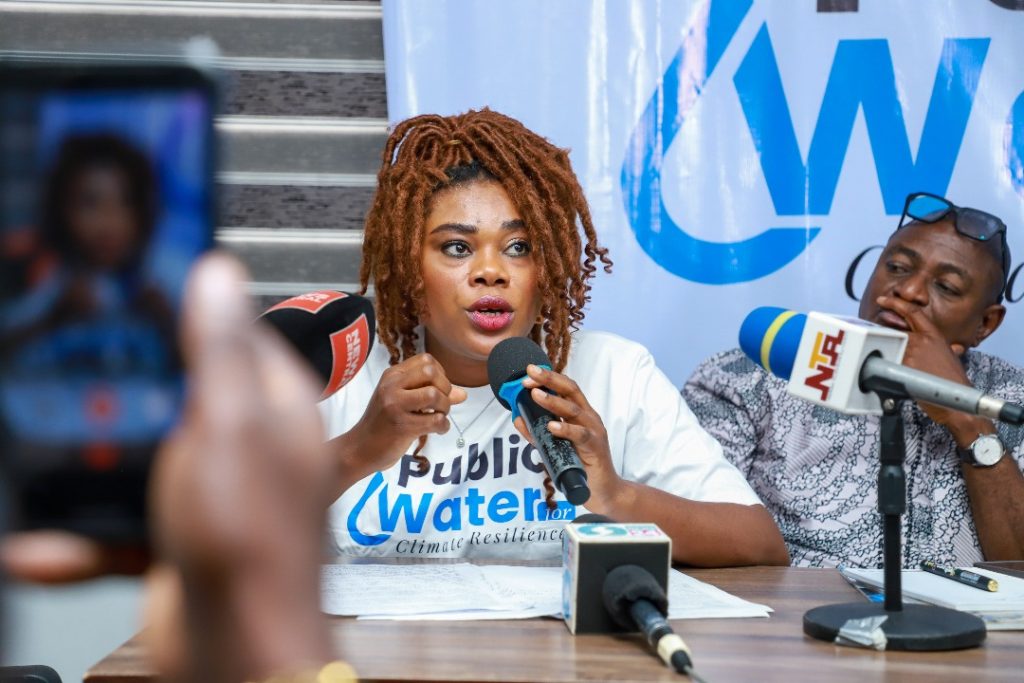 Assistant Executive Director at CAPPA, Zikora Ibeh
Assistant Executive Director at CAPPA, Zikora Ibeh
The statement noted the case of Tunisia where desalinated water is estimated to cost up to three times more than reservoir water, with energy alone making up forty percent of the cost.
The United Nations Special Rapporteur on human rights to safe drinking water and sanitation, Pedro Arrojo-Agudo who joined the press conference via zoom, spoke about the risks and impacts of water privatization and commodification.
He traces the privatisation of water which started in the 1970s with Pinochet’s dictatorial regime in Chile and Mrs. Thatcher in England, and later the French model, which avoided directly privatizing water or large infrastructural projects, but instead focused on privatizing management through the PPP with support from the World Bank. He says the PPP is just a pretext to justify the private control of public water systems.
The UN Rapporteur wondered why governments are failing to invest in public water. “Is there really no public capacity for financing, or is the relevant budgetary priority not being assigned to the effective fulfillment of human rights?”
He said water is a matter of priority: “And they (leaders) used to say we don’t have enough resources. But that doesn’t justify relegating the principle of priority. And for this, I used an example, let us think, let us reflect on the most impoverished families and communities worldwide. What is the priority for this group? In Africa and all around the world, what is the priority? It’s water.”
The Executive Director of Corporate Accountability and Public Participation Africa (CAPPA), Akinbode Oluwafemi, says that at a time when there’s a need for stronger, publicly accountable systems to guarantee universal access to water, we are seeing growing pressure to privatize our water systems and hand control of this essential resource to profit-driven corporations despite overwhelming public opposition.
Oluwafemi expresses delight for the support of the United Nations Special Rapporteur on the Human Rights to Safe Drinking Water & Sanitation, Mr. Pedro Arrojo-Agudo, saying his intervention affirms the global dimension of the struggle. “It signals that the fight for equitable, publicly governed water systems is not confined to any geography. It is a universal human rights demand rooted in the moral premise that life itself cannot be commodified.”
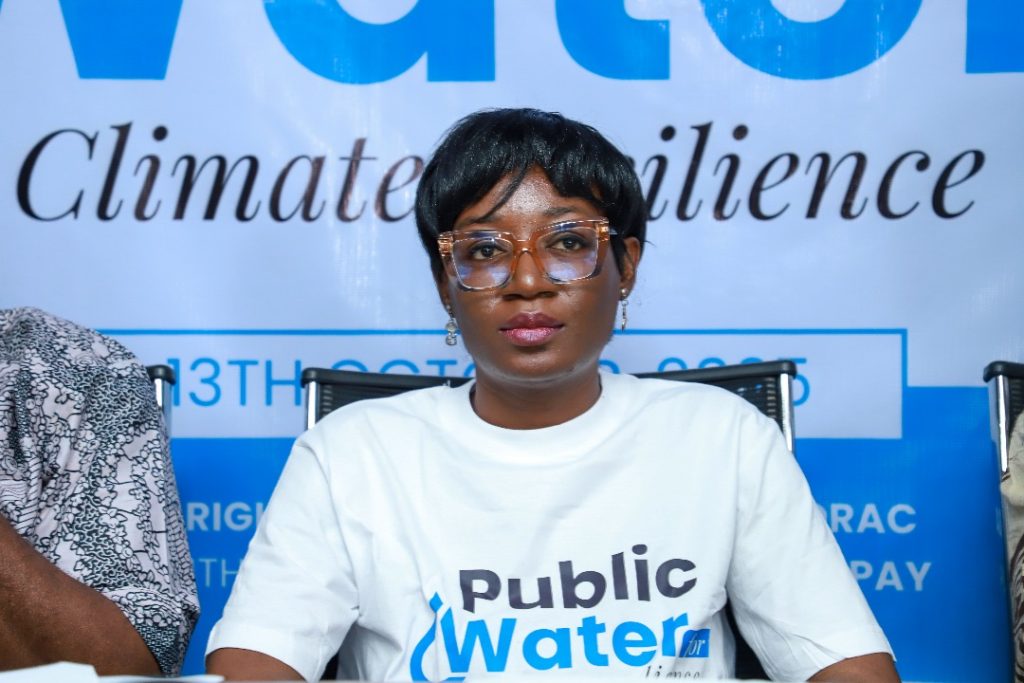 CAPPA’s Water Program Officer, Sefa Ikpa
CAPPA’s Water Program Officer, Sefa Ikpa
Neil Gupta, the Water Campaign Director at Corporate Accountability, says multibillion dollar corporations and their wealthy shareholders want to exploit our need for water to profit. “The fact that these corporations see the Global South, and the African continent in particular, as theirs for the taking is what makes international solidarity across our movement so essential.”
He dismissed the argument that PPP is not privatisation, saying: “We can’t be fooled, this is about corporate control of water.”
He adds: “At its core, privatization of essential services like water shifts the priority from ensuring universal access to maximizing profit for the corporation and its shareholders. This explains why, in case after case, country after country, water privatization is all too often followed by unaffordable tariff hikes, labor abuses and job cuts, and dangerous cost-cutting.
“Water privatization also poses a dire risk to our ability to collectively adapt to and mitigate the worst impacts of climate change. Simply put, the short term profit incentives of the private sector are fundamentally incompatible with the long term planning and investment that the climate crisis requires.”
He says from the World Bank to the IMF, international financial institutions foist privatization and austerity on governments at the expense of the people. “We’re also witnessing an alarming rate of direct Global North government interference in water.”
Other speakers included Fatou Diouf from Senegal who represented the Water Justice Network. She says water privatization is another term for the surrender of our lives to the law of the market.
Ndivile Mokoena, who represented the South African based Women for Climate Justice, says water has become a political commodity, making profit rather than a basic human rights service.
“Water cannot be replaced like electricity. You find an alternative that if you don’t have electricity, you can use candles, you can use wood to light the house or to keep the house warm. But with water, there is just no alternative.”
The Dean, Faculty of Social Sciences in the University of Lagos, Professor Adelaja Odutola Odukoya, describes those who seek to take over control of public water for profit as water kidnappers.
He said water privatisation has never guaranteed water access and affordability, arguing that even in Britain, water privatization has led to a lot of problems. “It has only increased dividends to stakeholders, shareholders.”
Other speakers at the event include; Leonard Shang-Quartey of Ghana’s Africa Water Justice Network who insists on public water control, and CAPPA’s Assistant Executive Director, Zikora Ibeh, who called out the Lagos government for desperately seeking to privatise public water at the expense of the people.
